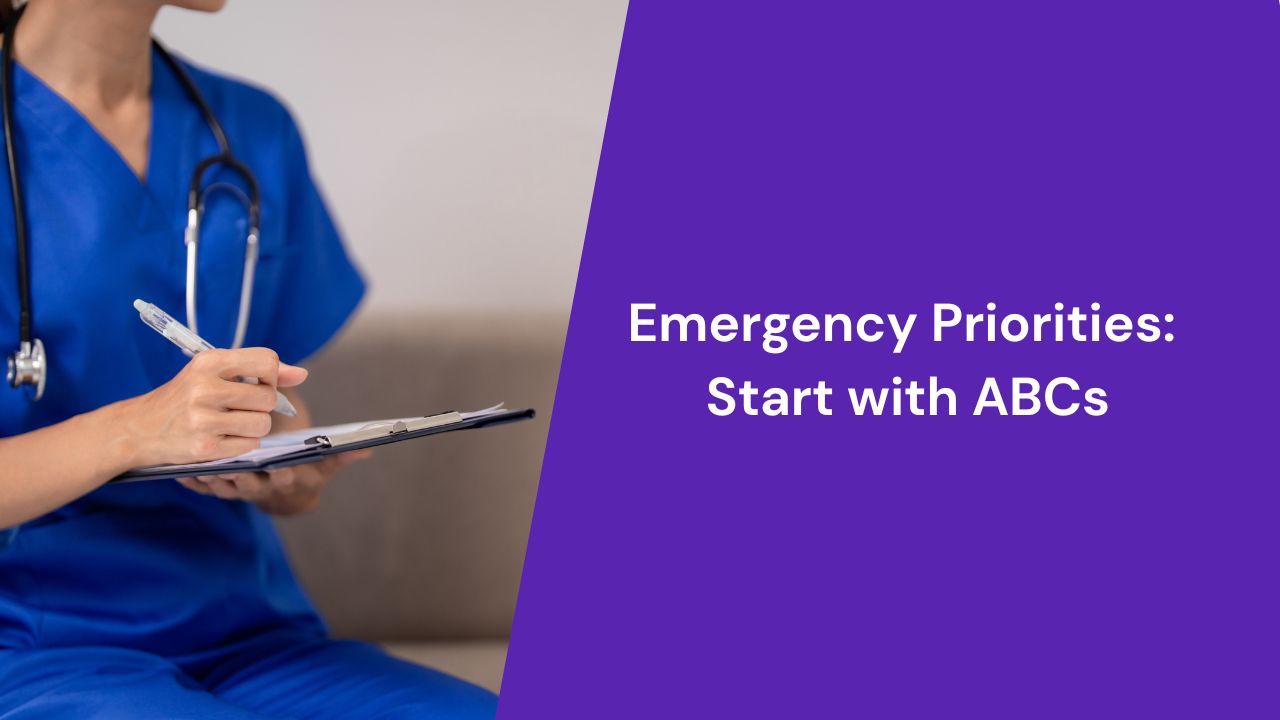Have you ever wondered if having a Bachelor of Science in Nursing (BSN) can give you better work opportunities? Do healthcare facilities prefer a BSN over an Associate Degree in Nursing (ADN)? If you are a registered nurse (RN) with an ADN and want to advance your career, this article is for you.
Differences between ADNs and BSNs
First, let us define the differences between BSN and ADN nursing degree programs in the United States.
Associate Degree in Nursing
Some key components of an ADN include the following:
- Education and curriculum: The ADN curriculum typically emphasizes day-to-day care, from monitoring vital signs to administering medications. It is usually a level of study for entry-level RN positions. In addition, an ADN usually takes two years, and it is a cheaper program. These programs are mostly provided at community colleges.
- Career opportunities: ADN nurses are likely to be employed as entry-level nurses. Sometimes, healthcare facilities ask that they further their careers after a certain period with RN-to-BSN degree programs.
- Pay: ADN nurses typically earn a lower salary than BSN nurses.
If you want to pursue an ADN, you can always advance to a BSN once you are already working.
Bachelor of Science in Nursing
A Bachelor of Science in Nursing has some of these differences compared to an ADN:
- Education and curriculum: Typically, the BSN curriculum contains additional training for RNs. For example, it has more training in clinical skills, research, and healthcare management. BSNs prepare for leadership roles, as RNs are often in charge of nursing teams. This degree has a longer duration, generally four years. It prepares RNs for more varied roles, not just direct patient care.
- Career opportunities: BSN nurses have more job opportunities, as they not only engage in hands-on patient care but can also take on leadership, management, and public health roles. Many healthcare facilities require or prefer a BSN in nursing.
- Pay: BSN nurses tend to earn more than ADN nurses. Of course, nurse salary variations also depend on location, experience, and nursing specialization. The median annual wage for an RN is $86,070.
Based on these factors, you can choose between an ADN or a BSN program to become a registered nurse.
A few decades ago, there was a higher percentage of ADN nurses than BSN nurses. Although many RNs continue to have ADN degrees, this trend has shifted. A BSN is a more competitive option for most RNs and healthcare facilities. One key component of BSNs is cultural competence, which supports RNs and the healthcare facility where they work to achieve improved patient satisfaction and healthcare outcomes.
Several studies show that a BSN has many benefits, such as better patient outcomes. By increasing the proportion of BSN nurses in hospitals, facilities can reduce the odds of risk-adjusted mortality, achieve shorter lengths of stay, and have lower readmission rates. In addition, in emergency cases, such as cardiac arrests, increasing the proportion of BSN nurses and lowering patient-to-nurse ratios improved the chances of patient survival.
What is right for me: ADN or BSN?
ADN or BSN? There are many incentives to get a BSN, but there are different reasons why an ADN might be a good choice for you. Let’s analyze the pros and cons of both degrees.
Pros and cons of ADNs
One of the advantages of earning an ADN in nursing is that it is a quick way to finish a degree and start working. Additionally, an ADN degree is less expensive than a BSN. Therefore, if you are looking for a quick and cost-effective way to start working and earning, an ADN is a great option. A significant advantage of ADN programs is that, once you graduate and are working, you can continue your education and get a BSN without interrupting your career.
However, some cons of an ADN degree are the limited access to career advancement opportunities.
One study found that it is more difficult for ADN degree students to pass the National Council Licensure Examination for Registered Nurses (NCLEX-RN) the first time, while a higher percentage of BSN students pass with fewer problems. This may be due to the fact that BSN nurses tend to have longer training. The NCLEX-RN is a standardized test for aspiring registered nurses before obtaining licensure to work.
Pros and cons of BSNs
A BSN program has between 300-700 hours of clinical training. Because it is a more comprehensive program, it takes longer and costs more.
However, for many, the advantages of having a BSN may outweigh these disadvantages. With a BSN degree, you can obtain positions with more responsibilities and work in public health roles or community health. In addition, you can propel your career by obtaining specializations, master’s degrees, or doctorates. RNs with nursing specialty certifications can increase their earnings further.
In the long run, you may be better off with a BSN if you want to invest in your career from the beginning. However, if your priority is to get a job quickly, an ADN is for you.
BSNs face growing demand from facility staffing
Healthcare facilities have begun emphasizing having BSN-degree nurses to improve patient care outcomes, reduce staffing shortages, and improve the quality of care.
Having more BSN RNs generates enormous advantages for both the facility and the patients while also providing RNs with opportunities for nursing career advancement. Many healthcare facilities are beginning to promote online or classroom-based RN-to-Bachelor-of-Science-in-Nursing programs for their staff. One of the major advantages of promoting BSN programs for facilities is that it increases job satisfaction and improves RN retention rates.
If you work in a healthcare facility that recognizes the benefits of a BSN, you may have job-sponsored options for an RN-to-BSN degree plan.
How to advance from ADN to BSN
RNs can pursue different program options designed for those who already hold a nurse license to advance from ADN to BSN and access the benefits of a higher degree. One option is through ADN-to-BSN online programs. The other option is through nursing schools that offer on-campus RN-to-BSN programs.
Online nursing degrees

There are many options for online ADN-to-BSN programs. One advantage of RN-to-BSN online courses is their flexibility; you can typically complete the course remotely and at your own pace. Generally, these RN-to-BSN online programs also include classes scheduled in real time. Naturally, it takes quite a bit of discipline to move at the necessary pace to complete the courses in a certain amount of time. Still, online classes are often the best option for people with other responsibilities such as work or family.
Most of the programs also have clinical practice hours. In online nursing degrees, you must look for the option that suits you best and take the time required to research all of your options. Some of the best online RN-to-BSN programs include the following:
- Ohio State University
- University of Central Florida
- Utah University
- Maryville University
- University of North Carolina-Wilmington
- University of Phoenix
- Herzing University
Another advantage of obtaining an RN-to-BSN degree online is that you can study without any problems, no matter how far the university is. The only requirements are your discipline and a good Internet connection. The convenience and flexibility that online BSN programs offer are appealing to busy registered nurses.
RN-to-BSN schools
On-campus programs require students to attend classes in person at scheduled times. Many students prefer this format for socialization with other students, contact, and structure. Studying with peers in person creates advantages. For example, many students who take online courses feel more isolated. However, fixed schedules can be a problem for busy professionals with shifts to cover.
State boards of nursing regulate nursing programs. Some renowned on-campus programs include these:
- Texas A&M University
- University of Pennsylvania
- California State University (CSU)
- Johns Hopkins University
- Boston University
You can look for programs and colleges of nursing near where you work or live, as many nursing schools offer RN-to-BSN programs. Any program listed in your state board of nursing is valid.
Clinical practice requirements in ADN-to-BSN programs

Finally, it is essential to remember that clinical practice requirements exist in the ADN-to-BSN programs. Depending on the institution offering the program, both online and on-campus nursing degrees usually require between 30 and 120 hours of practical training.
Some programs consider that RNs who have ADN degrees already have clinical experience, while others require additional clinical practice. The advantage of having clinical hours is the possibility of practicing everything learned in the classroom. Therefore, nurses should look for programs that focus on clinical practice.
As you can see, a BSN has many benefits and offers many opportunities to continue your nursing education while working.
Organize your RN life with PRN jobs
One of the easiest ways to organize your schedule so that you can study and work at the same time and even move to another location for an RN-to-BSN program is through per diem jobs. Also known as PRN jobs, these allow you to pick up shifts when you choose and earn more per hour.
Whether your facility asks for a BSN or you want to advance your career to get better prospects, you can achieve your goals with the help of per diem jobs.
One of the best options for getting PRN jobs near you is Nursa. Sign up to create your profile, discover the advantages of per diem nursing, and obtain job experience while you pursue your BSN degree. Research your options and choose the program that suits you best. Enroll in an RN-to-BSN program and propel yourself forward as a nurse.
Sources:
- U.S. Bureau of Labor Statistics: Registered Nurses
- National Library of Medicine: Changes in the proportion of bachelor’s nurses associated with improvements in patient outcomes
- National Library of Medicine: In Hospitals With More Nurses Who Have Baccalaureate Degrees, Better Outcomes For Patients After Cardiac Arrest
- Forbes Advisor: ASN Vs. BSN: Which Degree Should You Earn?











.jpg)
.webp)

